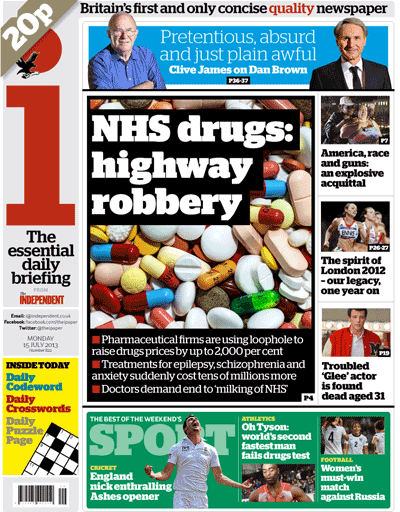
The queue in Accident & Emergency yesterday morning was mercifully short; little sign of the drunks and cranks who populate its beds in the early hours of a Sunday. My loved one was treated quickly and kindly: her ankle X-rayed and the sprain strapped up, leaving her to hop out on crutches after an hour. The doctor’s next patients – a young restless guy in headphones bouncing around the waiting room while his girlfriend watched, concerned, and a woman who’d broken her hand punching a wall – looked trickier customers.
I hate being in hospitals. Too many broken humans, reminding us of the occasional fragility of our existence. To anyone who feels similarly, well, we’re going to hear a lot about hospitals this week, on at least three fronts.
First, the end of the “Liverpool Care Pathway” (denounced by its critics as the pathway to death), the countrywide system of doctors removing treatment (feeding, fluids) from the terminally ill to ease their pain and bring dignity to the last hours of people’s lives. Doctors overwhelmingly support it – nine out of 10 would choose it for themselves – but their failure to tell all patients that they are being placed on the “pathway” (eurgh) has holed the current system beneath the waterline. Its abolition will lead to inconsistent treatment of the dying – but people will at least be told what decisions clinicians have made about the end of their lives, and even be consulted.
Second, Whitehall hit squads are to be sent in to Britain’s most dangerous hospitals to try to stop so many unnecessary deaths. The aim? To remove bad managers and avoid more Mid Staffs hospital scandals, where staff abandoned people to die in their beds, and patients drank the water from flower vases to cling to life.
Third, the NHS medical director, Sir Bruce Keogh, spells out in more detail how a seven-day NHS will work, with routine treatments, scans and consultants on the wards at weekends. This sort of disruption to employees’ family lives is never going to be popular, but managers may strike a Faustian bargain with ministers under the pretext of helping the NHS to become more economical.
Convenience counts for patients, of course. But there’s a paradox here. We like to see health services as a commodity on tap – yet we also want highly personalised, compassionate care. That takes time. Kindness doesn’t cut you short and send you home. So when there’s a bit of a wait at hospital, it might be that the doctor is busy being nice to the person ahead of us in the queue.
Join our commenting forum
Join thought-provoking conversations, follow other Independent readers and see their replies
Comments